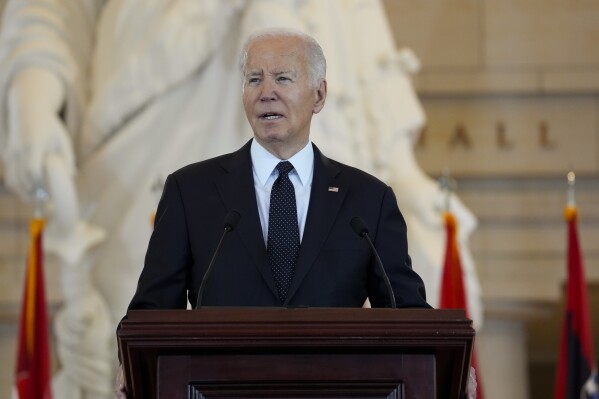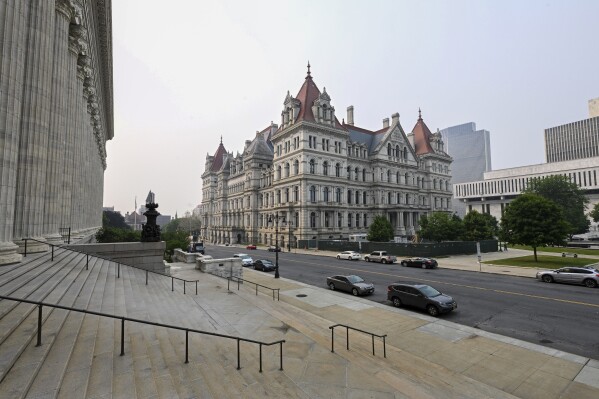With 2024 presidential contest looming, Georgia governor signs new election changes into law
ATLANTA (AP) — Gov. Brian Kemp signed legislation Tuesday that makes additional changes to Georgia’s election laws ahead of the 2024 presidential contest in the battleground state, including defining probable causes for removing voters from the rolls when their eligibility is challenged.
Republican activists — fueled by debunked theories of a stolen election — have challenged more than 100,000 voters in the state in recent years. The activists say they are rooting out duplicate records and removing voters who have moved out of state.
The bill Kemp signed into law — SB 189 — lists death, evidence of voting or registering in another jurisdiction, a tax exemption indicating a primary residence elsewhere, or a nonresidential address as probable causes for removing voters from the rolls. Most controversially, it says the National Change of Address list can be considered, though not exclusively.
Opponents have said the changes would enable more baseless attacks on voters that would overwhelm election administrators and disenfranchise legitimate voters. For example, people sometimes live at a place of business, which would be considered a nonresidential address. Officials with Georgia Secretary of State Brad Raffensperger’s office say there are more reliable types of information, such as driver’s license data, to confirm a voter’s eligibility.



The Georgia bill also allows challenges to be accepted and voters removed from the rolls up until 45 days before an election. That provision in part has prompted the threat of lawsuits from liberal groups because federal law says states and counties can’t make systematic changes to voting rolls within 90 days of a federal election.
The measure also says homeless people must use the county voter registration office as their address instead of where they live. Opponents have said that could make it harder for homeless citizens to cast ballots because their registered polling place might be far away.
Additionally, the bill grants access to Georgia’s ballot to any political party that has qualified for the presidential ballot in at least 20 states or territories. The change could bolster independent candidates such as Robert F. Kennedy Jr., whose campaign has spooked Democrats worried it could draw support away from President Joe Biden.
Disclaimer: The copyright of this article belongs to the original author. Reposting this article is solely for the purpose of information dissemination and does not constitute any investment advice. If there is any infringement, please contact us immediately. We will make corrections or deletions as necessary. Thank you.




